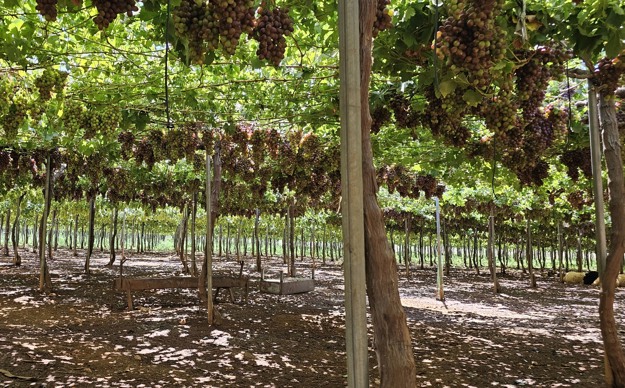
Almost 90% of the 59,000 tons of grapes produced in Lebanon has been exported in 2021, figures of the Food and Agriculture Organization (FAO) reveal. It’s a clear indication of the product's high quality. Nonetheless, that volume is modest compared to Greece's 270,000 tons, Spain's 300,000 tons, and Italy's 720,000 tons (USDA figures). Despite its small scale, it is well worth taking a closer look at Lebanese grape growing. Elie Haddad of Farmers Valley, a grape and stone fruit grower in Bekaa, provides that.
"In 2005, Lebanese grape exports to Europe were decent but lacking in quality," begins Elie. "The past three years’ focus on seedless varieties and premium quality changed that.” FAO figures confirm Elie's claim, with exports fluctuating between 15,000 and 30,000 tons between 1978 and 2019, to suddenly climb to 47,000 tons in 2020 and 52,000 tons in 2021.
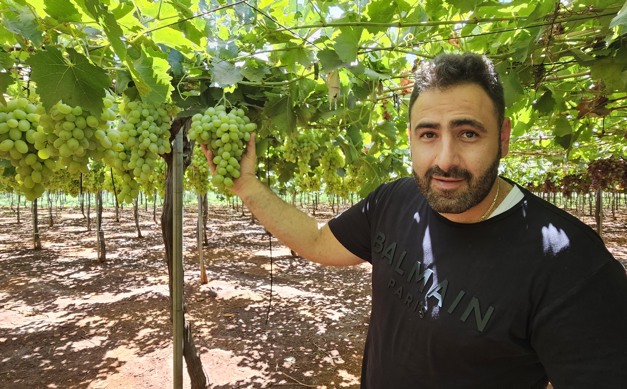
Steady expansion
Elie established his vineyard in 2018, planting red and white seedless varieties, among which Arra 15 and some Lebanese varieties. He currently harvests 300 tons per year on six hectares. A small player for now but an ambitious one. He plans to steadily expand soon, not just regarding acreage and introducing new varieties (there are plans to add Arra 36 to the product range next year) but also building a packing facility.
"At present, we pack some of our grapes in the field and some in another company's packaging facility. I also work with others for logistics. For a sector to grow, cooperation is crucial. I don't yet export my grapes to Europe. I leave that to larger export companies," says Elie.
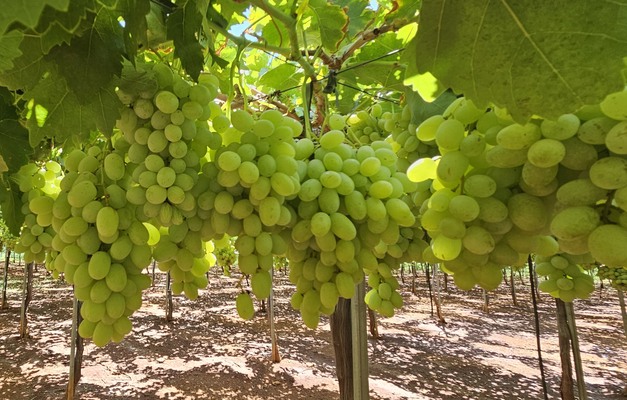
Stable climate with reasonable investment costs
He says Lebanon's stable climate and fertile soil are ideally suited to grape cultivation, thus, resulting in superior quality. "A friend of mine, an Italian vintner, told me recently that you could successfully grow any grape variety here. We have many hours of sunshine, sufficient annual rainfall, significant groundwater reserves, dry weather from May to early November, and no devastating hailstorms. So, the country has all the characteristics needed to elevate grape cultivation when it comes to flavor, shelf life, and average yield."
Establishing a hectare of grape vines costs, on average, $18,000 and $4,000 to cover it, investment is, thus, also much lower than in Europe. "That covering isn't a must here, either, at least not to protect the grapes from rain or hail or to control the amount of UV light. That means we can deliver at least the same quality as in Italy, but at a lower cost," Haddad says.
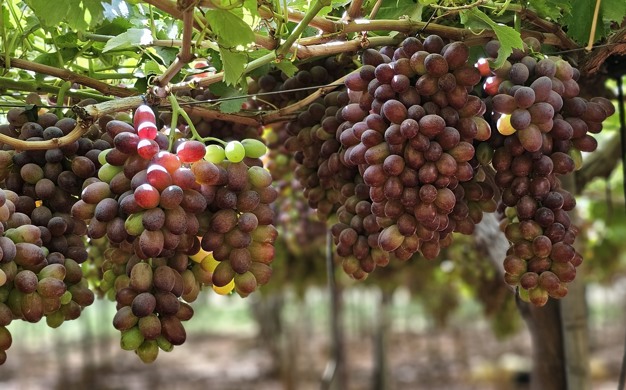
Zero waste
Aside from product quality, Farmers Valley offers a few more assets: a zero-waste philosophy and modern, sustainable cultivation methods. "Plant waste is left on the ground to add to the soil's organic matter. And all of our grapes, from the first to the last, are assigned destinations according to their quality: fresh market, wine, juice, molasses, liqueur, and even vinegar. We manage our water via drip irrigation, and thanks to a sophisticated crop protection program, we score below the MRLs in every laboratory test. All our certifications also testify to that, allowing us to market our product anywhere in the world."
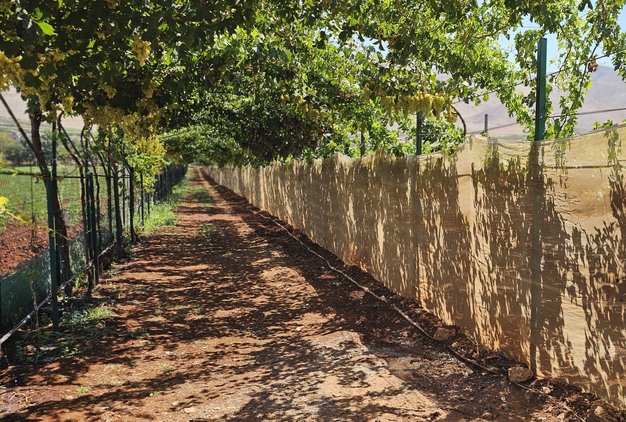
Grape orchard surrounded with net to protect against insects and unwanted animals
Exports offer more chances than local market
"It takes about three weeks - from late September to the first half of October - to harvest our grapes. On the international market, we thus avoid competition from Egypt, where grapes are picked earlier. In fact, the last northern hemisphere varieties come from Lebanon before the Peruvian season begins," Elie explains.
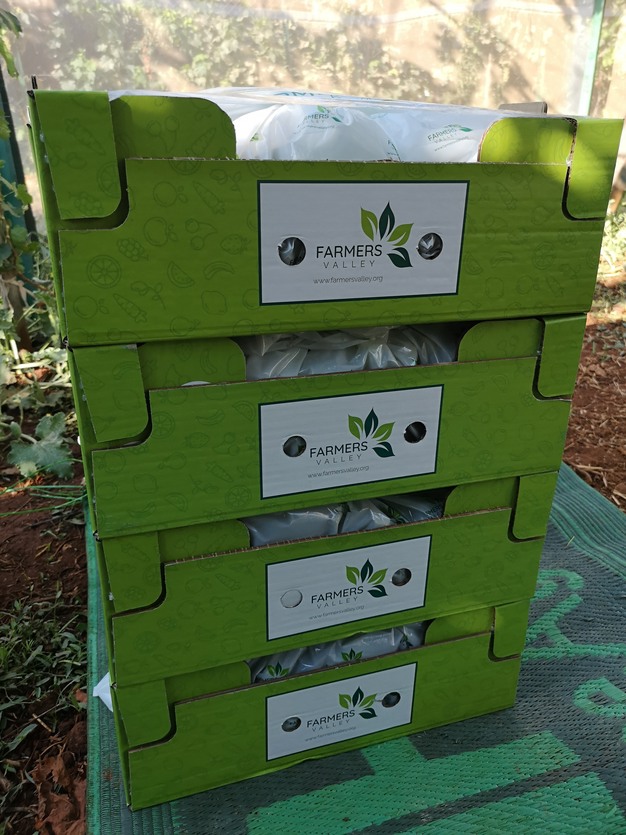
Despite logistical challenges and exchange rate fluctuations, he prefers exports over the local market. "Before the economically turbulent 2019, grapes prices on the local market were quite good, between $2 and $3 for the unpackaged product. But the price dropped to around a euro, where it remains. We're in a much better position in markets like Malaysia and Singapore despite the long transit time and Chinese competition with cheaper Shine Muscat grapes. Our product gets premium prices there because of its quality."
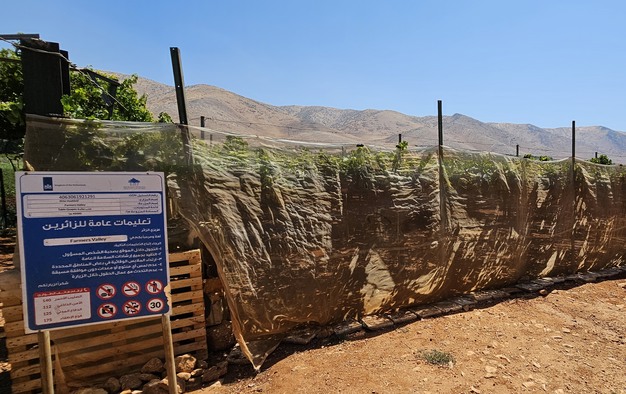
CBI helped Elie set up certifications
Although the local market lost its appeal, Saudi Arabia has not even been an option since 2018. Not directly, anyway. "We used to export quite a bit there, but that's been banned. Yet Lebanese produce still enters the Saudi market. Indirectly, though, through the United Arab Emirates. They pay well for our grapes. Our fruit is very popular in the Gulf States thanks to its excellent flavor. We could break through in Europe, too, given that quality, but some growers and exporters still need to work a bit on their specifications."
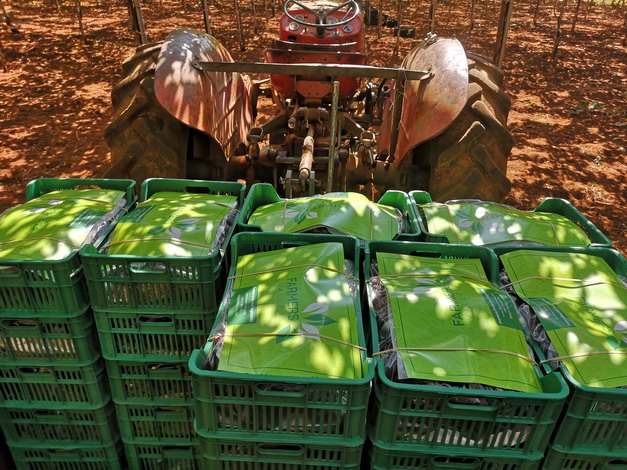
Elie says Lebanese grapes have no problem competing with Turkish grapes, flavor-wise. Turkey is one of the largest producers worldwide (2.2 million tons in 2022/2023, according to USDA). "They have climate issues we don't have. Though, since this year, we're dealing with pesticide and fertilizer cost increases because of higher tax and customs," he concludes. Despite current input costs, Elie, who has complete confidence in Lebanese grapes' exceptional quality, has good reason to have high hopes for the sector's future.
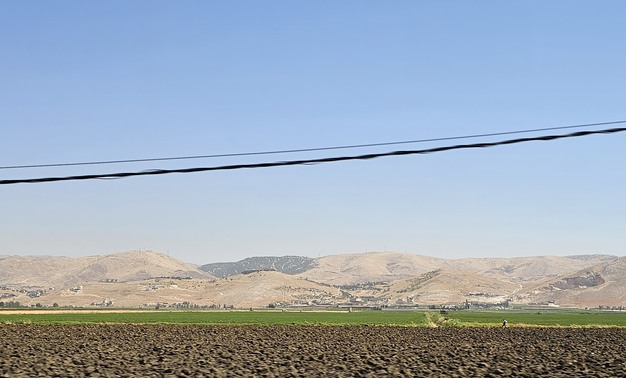
The extremely fertile Beqaa Valley
For more information:
Elie Haddad
Farmers Valley
Bekaa-vallei (Libanon)
Tel: +961 71 989 796
efhaddad@farmersvalley.org
